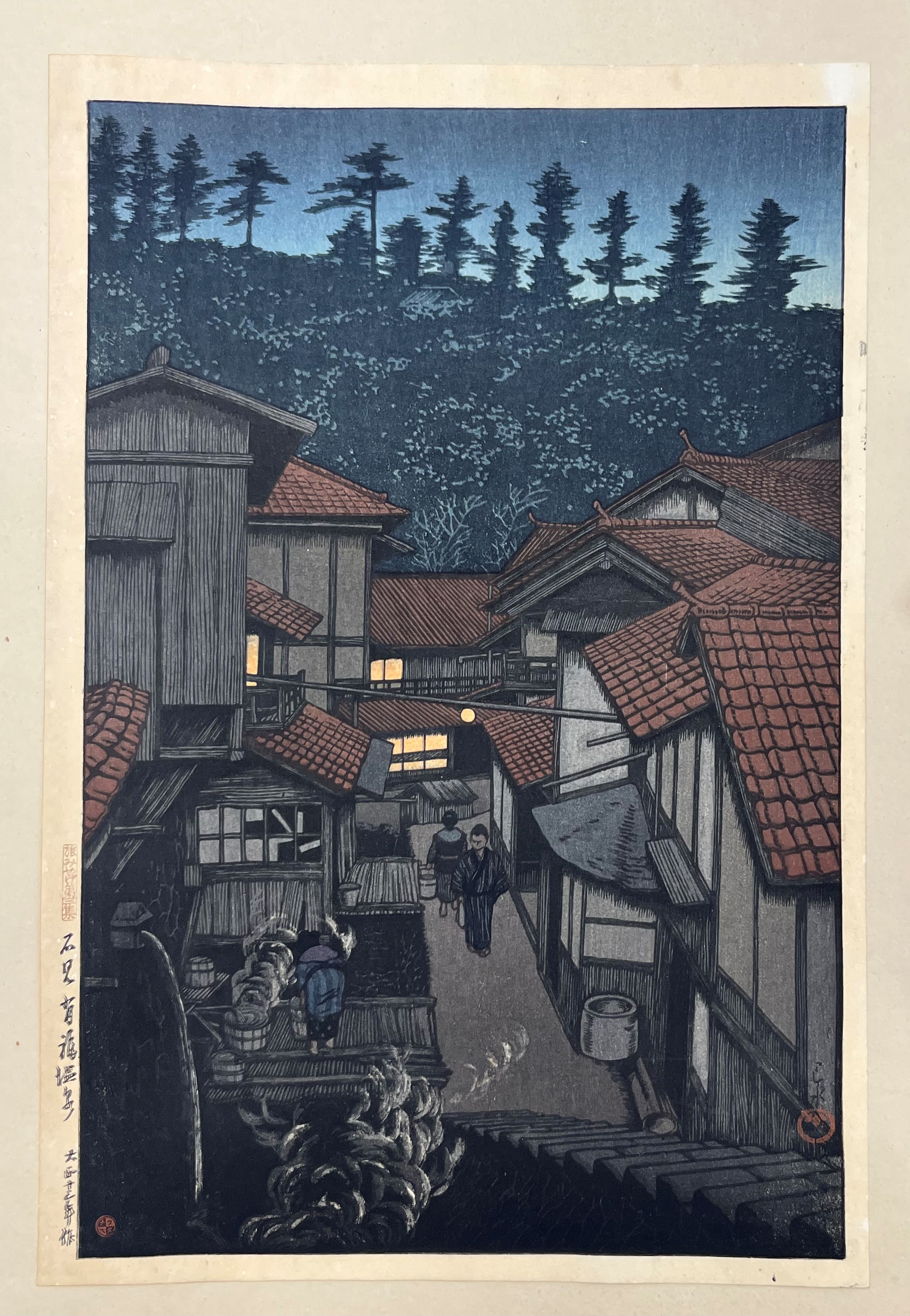Japanese & Korean Works of Art - 20th May 2025
Lot 420
A COLLECTION OF JAPANESE PRINTS, PAPER EPHEMERA, AND GLASS PLATES NEGATIVES
Estimate £400 - £600 | Hammer £1890
Inc. Buyers Premium
Description

A COLLECTION OF JAPANESE PRINTS, PAPER EPHEMERA, AND GLASS PLATES NEGATIVES
19TH AND 20TH CENTURY
Including: a Japanese oban tate-e woodblock print by Kawase Hasui (1883-1957) entitled Tabi miyage dai sanshu: Iwami Arifuku Onsen (Souvenirs of Travel, Third Series: Arifuku Hot Spring, Iwami), signed Hasui with artist's seal Kawase, with the publisher's red seal reading Watanabe lower left, the series title cartouche on the left margin,Tabi miyage dai sanshu, followed by the print title Iwami Arifuku Onsen, and date Taisho ju sannen saku(work of Taisho 13 [1924]); two Japanese albums of prints by Mizuno Toshikata (1866–1908), one entitled Chanoyu Hibigusa (Complete Illustrations and Explanations of the Tea Ceremony), published by Akiyama Buemon in 1896, the other Sanjūroku kasen (Thirty-six Elegant Selections), also published by Akiyama Buemon, in 1893; five glass plates by an unidentified photographer, depicting men, women and children at work, drying and weaving palm leaves, possibly in Malaysia; together with other paper ephemera, some relating to Japanese art. (a lot)
WITHOUT RESERVE
From the collection of Annie Muriel Gammans (née Paul), Lady Gammans (1898-1989), and thence by descent.
Annie Muriel Gammans (née Paul), Lady Gammans (1898-1989) was a British Conservative politician who became the MP for Hornsey in a 1957 by-election after her husband's death, serving until 1966. Drawing on her experience from her husband's colonial service career, she focused on foreign affairs in Parliament, notably Malaya, and was active in the Inter-Parliamentary Union. She also addressed domestic issues, advocating for her constituents on matters like pensions and traffic, and even opposed government policies when she felt it necessary. Notably, she had already been heavily involved in her husband's constituency work and was considered very popular.